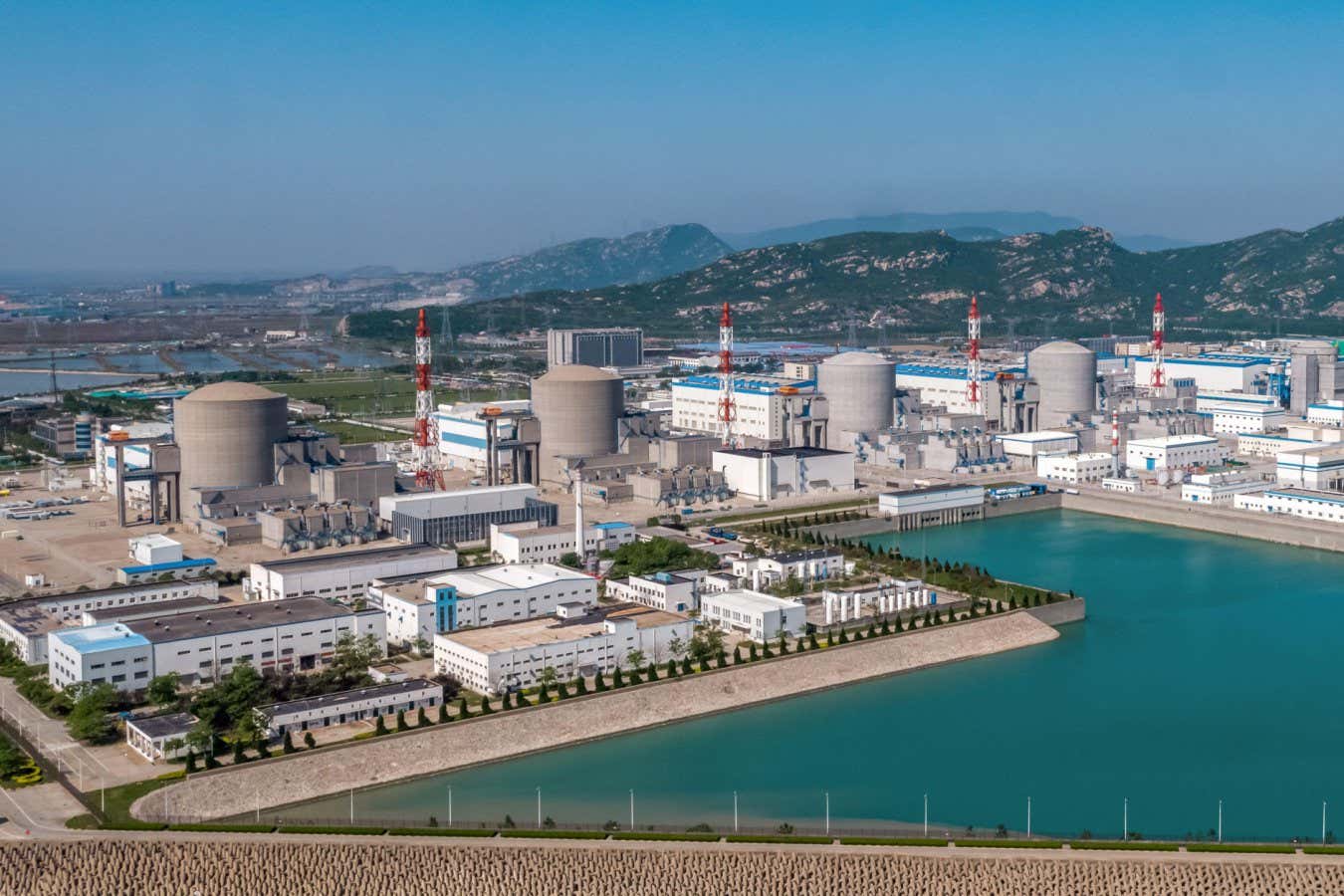Chinese researchers have a new method to extract uranium from seawater twice as cheaply as previous technologies. Their success comes as China needs uranium to fuel its unprecedented nuclear expansion
By Jeremy Hsu
12 May 2025
The Tianwan nuclear power plant on the coast of the Yellow Sea in China
Xinhua/Alamy
Chinese researchers have developed an extremely energy efficient and low-cost technology for extracting uranium from seawater, a potential boon to the country’s nuclear power ambitions. China currently leads the world in building new nuclear power plants, and shoring up its supply of uranium will help these efforts.
The world’s oceans hold an estimated 4.5 billion tonnes of uranium – more than 1000 times that available to mining – but it is extremely dilute. Previous experimental efforts have harvested uranium from seawater by physically soaking it up with artificial sponges or a polymer material inspired by blood vessel patterns, or by the more efficient and more expensive electrochemical method of trapping uranium atoms with electric fields.
Read more
Chinese nuclear reactor is completely meltdown-proof
Advertisement
Shuangyin Wang at Hunan University in China and his colleagues have developed an upgraded electrochemical technique that is cheaper and requires less energy than any other for use with seawater. Unlike typical electrochemical systems, which only pull uranium atoms from water at the positive electrode, their device contains two copper electrodes, one positive and one negative, that can both gather uranium.
This approach was able to extract 100 per cent of the uranium atoms from a salty seawater-like solution within 40 minutes. By comparison, some physical adsorption methods extract less than 10 per cent of the available uranium.
The system is “very innovative” and “a significant step forward compared to… existing uranium extraction methods”, says Shengqian Ma at the University of North Texas, who wasn’t involved in the new research.
